
This timeline begins in the 16th century, when Russia under Ivan IV was defeated in the war with the Polish-Lithuanian Union. This leads to the preservation of Polish hegemony in the east and the defeat of Prussia in the war with Poland. The weakening of Prussia leads to the strengthening of Austria, but later the Habsburg dynasty loses its influence due to the overgrown feudal state and during the succession disputes, the Austrian throne is occupied by a Prussian nobleman from the Egendorf dynasty. Germany soon unites under the rule of Vienna, which makes it the center of the world. In the future, most of the colonial world will be German. In the 19th century, the empire will begin to crack at the seams due to the rise of nationalism and communism, but the Kaiser of Germany from the younger branch of the Egendorfs will create a hybrid ideology of Social Paternalism, a mixture of authoritarian conservative ideas and Marxism, which on the one hand can unite the country, and on the other destroy it. Years have passed since the German world order raised. Austria, having unified Germany, created the largest empire in the world. However now Germany is drowning in communism. While it is torn apart by internal contradictions, other countries are eager to change the status quo. Totalitarian Turkey and Scandinavia are out for retribution as more radical socialism develops in Britain, and authoritarian Russia and France want to keep the old world ideas in a new form, all while liberal Spain and Brazil are trying to keep the world from an inevitable catastrophe.
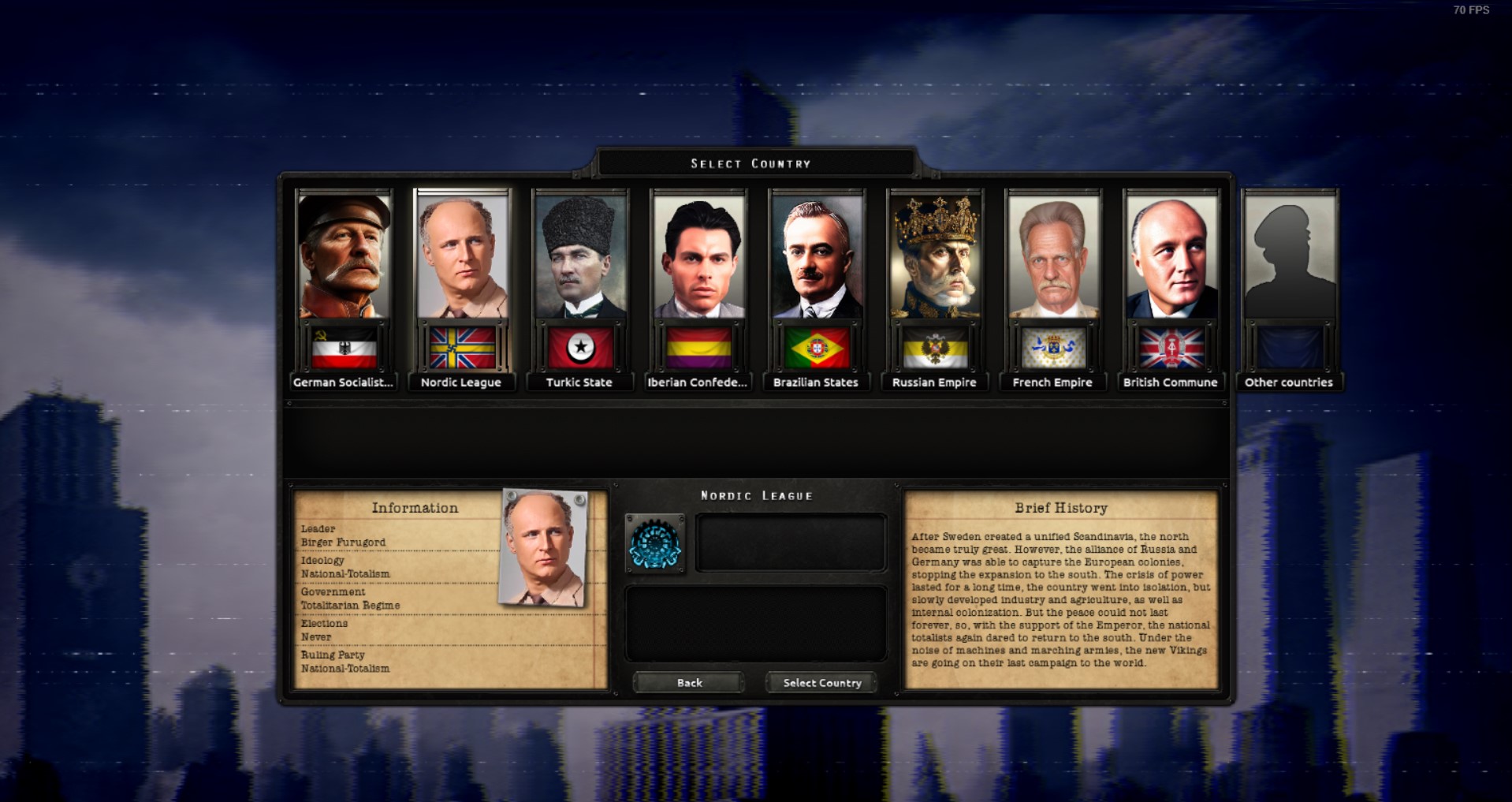
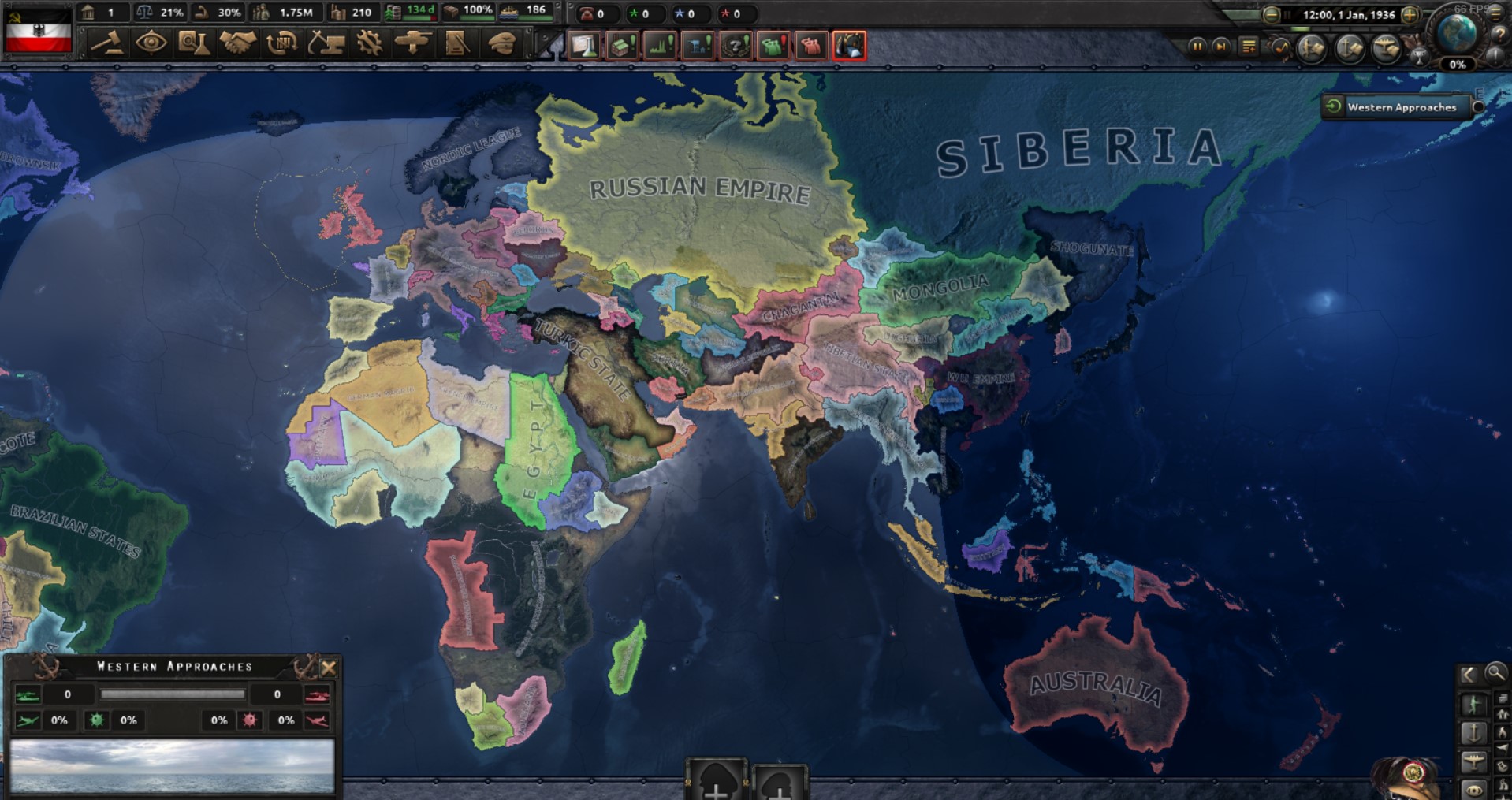
Center of the World. Hegemon of Europe. Germany has repeatedly proved its superiority over other powers. The Great Wars were no exception. However, the triumph of the German Empire turned into a crisis. Separatism in the colonies and nationalism in the regions polarized the country. Kaiser Felix from childhood expressed a penchant for the ideas of Marxism. Soon, the aristocracy was out of work, and the government was filled with left-wing intelligentsia. The leftist reforms of Felix von Hoff changed the country, but retained its essence, absolutism and imperialism. Now Germany is at a crossroad.
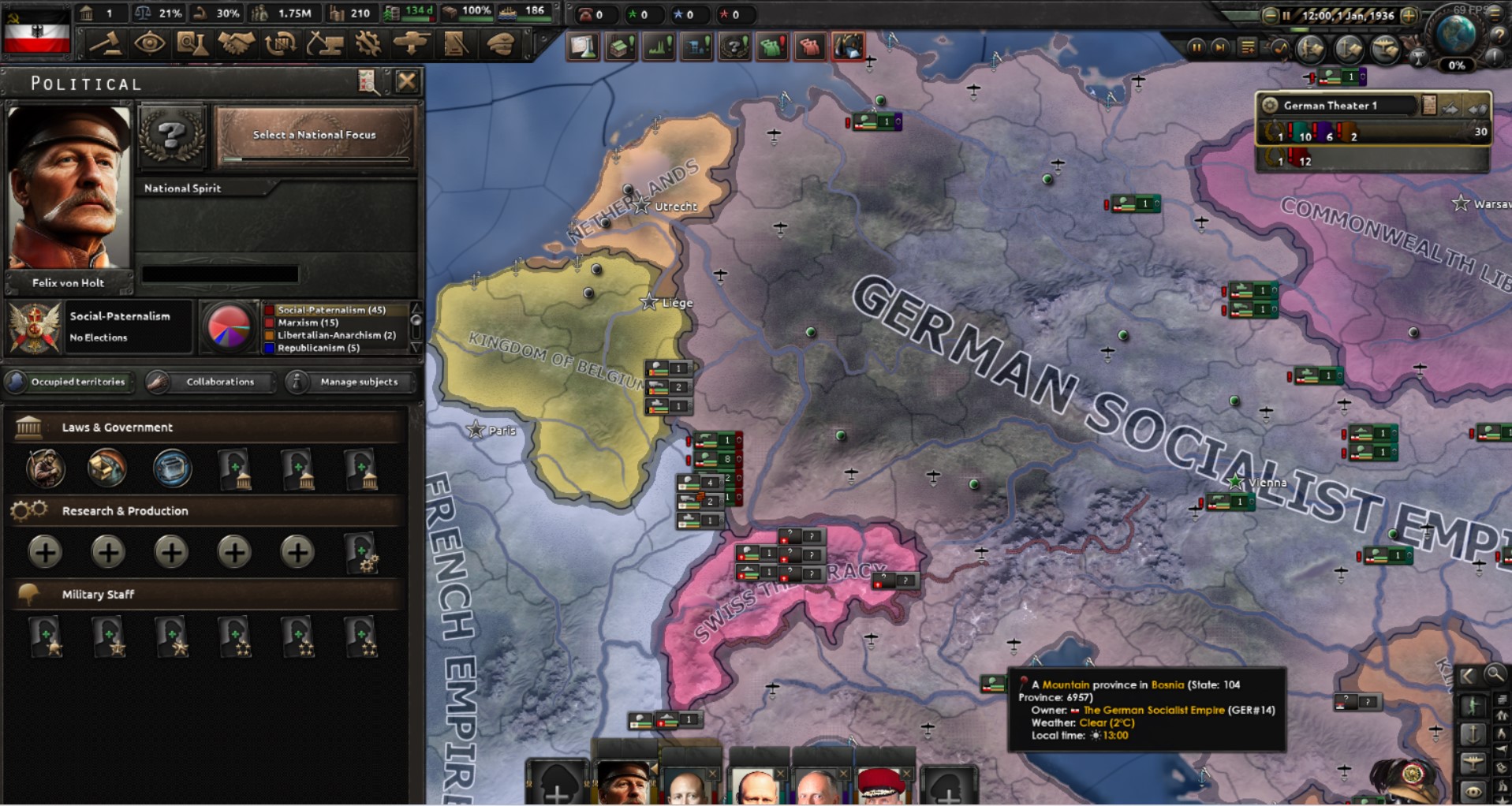
Lübenstadt is Germany's largest colony in the west. The country with the most developed industry in America and great potential. However, dependence on the Kaiserreich greatly affects the pace of development, in addition, after the start of the red reforms, the much more ethnically integral Lubenstadt became a more turbulent place. Now the country is ruled by Vice Kaiser Paul von Hoff, but the population of the country gives preference to the young national totalist, Chancellor Adolf Hitler. A veteran of the Great Wars, a shrewd politician and orator, he does not intend to put up with the current state of affairs, and his power is growing stronger every day.
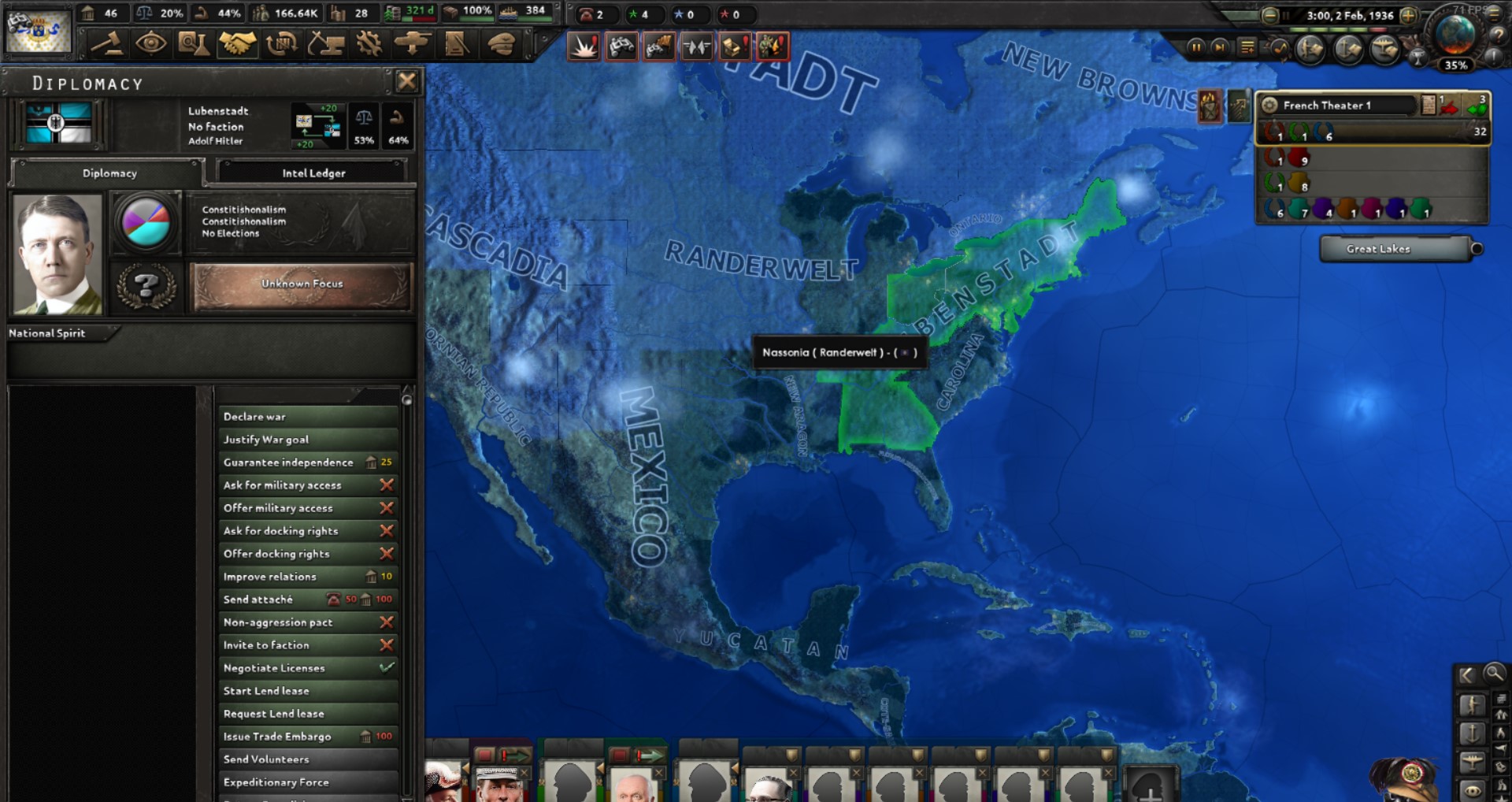
France, subjected to German expansion, was able not only to survive, but also to rise, becoming the second power in the world. The separation of Belgium and the colonies was compensated by lands in Africa and Asia, which strengthened the power of the king and his senate. Today, France remains faithful to the old order and is ready to resist both red and blue countries. However, movements in the colonies and revolutionary cells of socialists and reactionaries can prevent this.
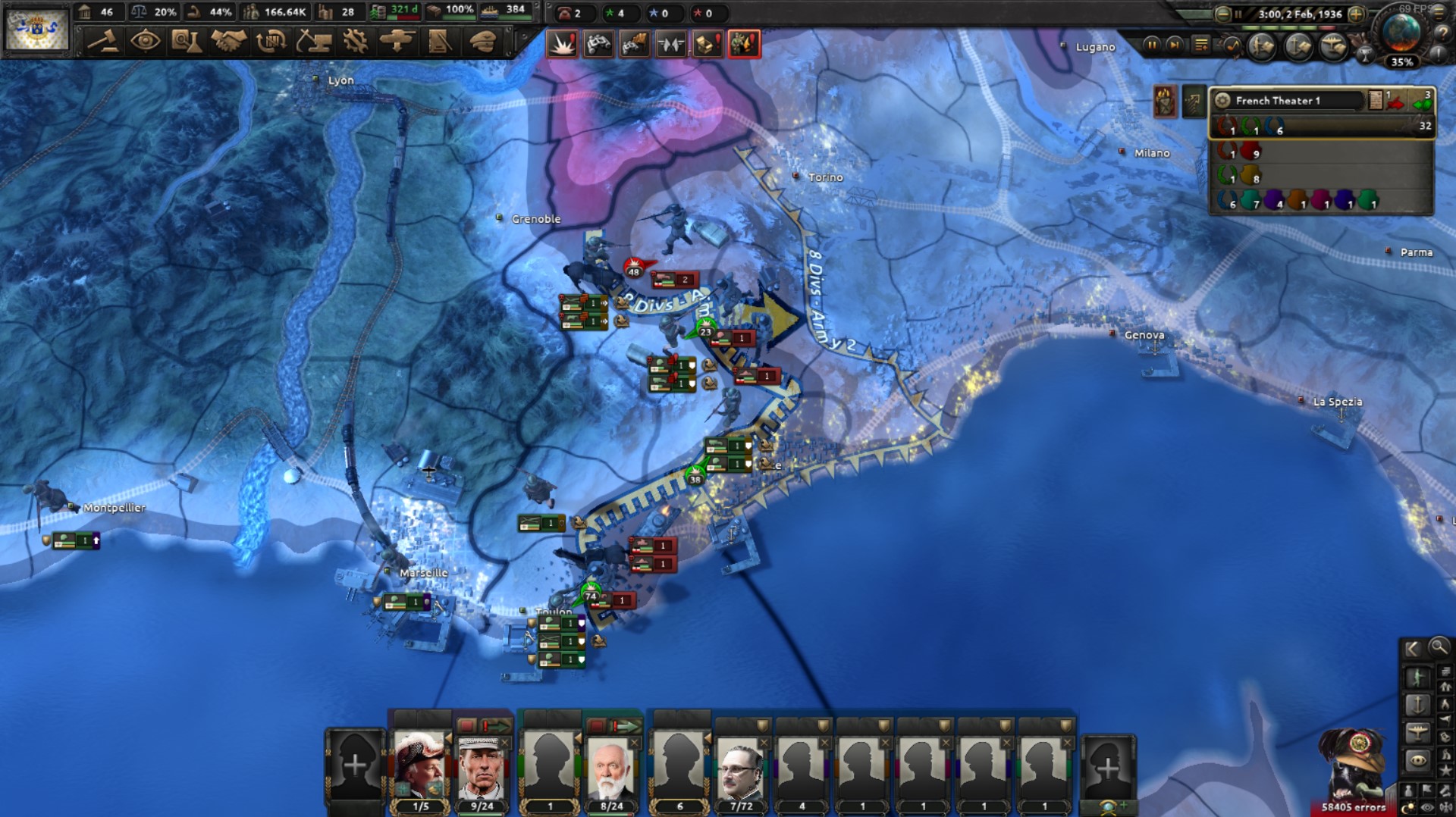
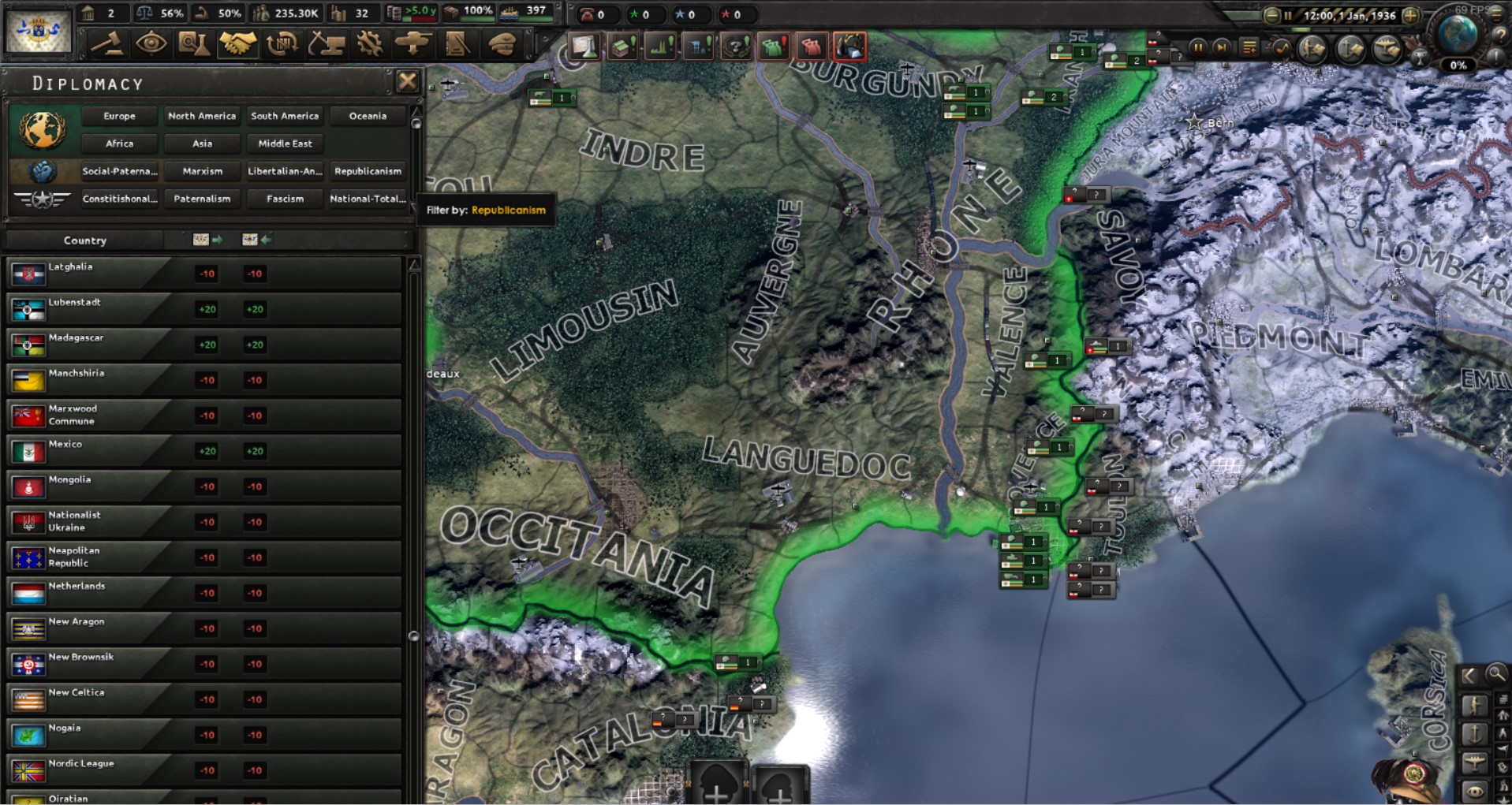
Britain has never been able to become great. Attempts to colonize America were unsuccessful and the country with great potential received only lands in central Africa and several islands. the developing industry became the cause of the workers' revolution that overthrew the power of the king. Now, under the new flag of true socialism, Britain is preparing to crush the old world and especially the revisionists of the so-called "Red Kaiser". Production and construction are in full swing. A red storm is about to crush Europe.
Defeat. Humiliation. Misery. The Ottoman Empire fell to the bottom, having lost most of its colonial territories. The economic crisis of the late 19th century sparked national secession movements and led to rampant foreign expansion, and the Turkish revolution ended with bloody purges and the final fall of the country. Populists asked Germany for help, but underground organizations sabotaged the German hegemony. A few years later, the ideas of autarky, promoted by the new pan-Turkist party, lifted the country's economy from the ruins. The German particulists were expelled from the country by the rebellious army. Turkey will no longer grovel.
After Sweden created a unified Scandinavia, the north became truly powerful. However, the alliance of Russia and Germany was able to capture the European colonies, stopping the expansion to the south. The crisis of power lasted for a long time, the country went into isolation, but slowly developed industry and agriculture, as well as internal colonization. But the peace could not last forever, so, with the support of the Emperor, the national totalists again dared to return to the south. Under the noise of machines and marching armies, the new Vikings are going on their last campaign to the world.
Spain was once the strongest country in the world, a great colonial power united with Portugal. However, the flow of gold devalued the currency, and overseas lands began to gain independence. The end was the civil war of monarchists and falangists, which weakened the country. The Falangists won, but were soon also curtailed by the Republicans. The torn country needed a new policy and soon the ideas of anarchism gave rise to something new. New Iberia has embarked on the path of minarchism and peace and stability have replaced strife. However, will such a regime be able to resist the military machines of centralized states?
After the fall of Portugal, Brazil gained independence. The remnants of the government of the old kingdom fled and were integrated into the republic. Left alone, the country began to develop actively and soon rose as a bastion of democracy and freedom in a world full of authoritarianism. America slowly entered the sphere of influence of the republic, which finally expelled the Germans and Iberians from here. Although still inferior to the giants, but full of determination, Brazil will defend the ideals of freedom for all people of the world.
The unification of Russia by Moscow turned into a catastrophe, because of polish and turkish invaders. But darkness is always followed by light. The German Eigendorff dynasty was established on the throne, which gave Russia a powerful ally. The economy was growing, and Russia became one of its centers from the backwoods of Europe. At the 19th century, Russia finally rose, annexing the asian and scandinavian lands. Now, when the red plague is raging in Germany, Russia continues the path of nationality Power is passing from the hands of the aristocracy to the nascent corporations, which promises changes in politics. Will Russia finally be able to realize its potential?
In short: yeah it's a mess tbh
2. More emphasis on domestic politics than on war, in the style of TNO but more simplistic.
3. A large timeline, from 39 to the present, of course not in the first versions.
4. New mechanics of economics and technological singularities, as well as foreign and domestic policy.
5. Voluminous content for majors related to economic, technological competition, as well as proxy wars.
6. 4 Epochs: The Fall of German Hegemony, the Cold War, the World War, the Post-war years. Of course, the development will go gradually.
7. New ideologies. Social Paternalism, Marxism, Constitutionalism, Paternalism, Anarcho-Libertalism, Republicanism, National Totalism, Fascism.
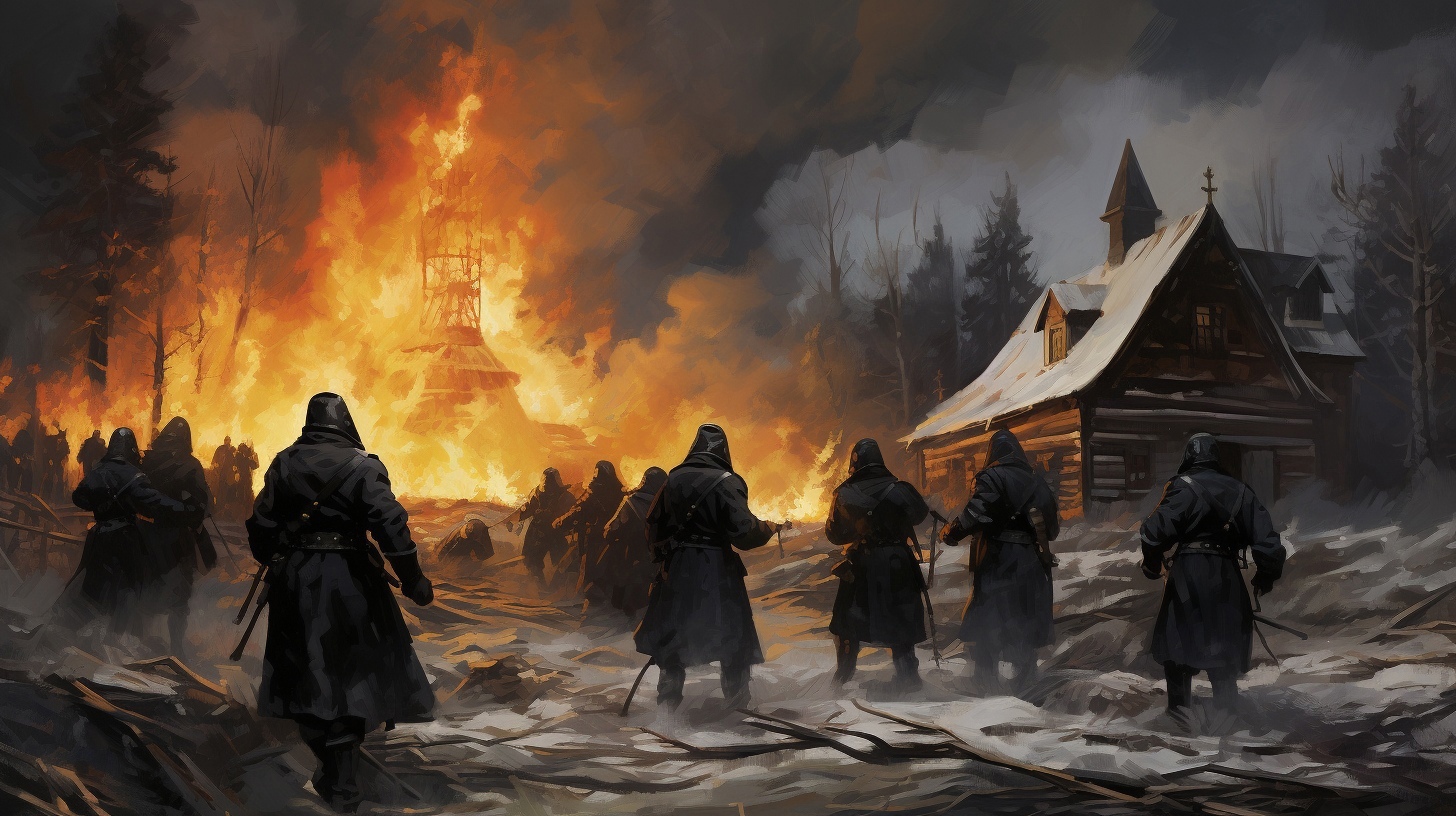
Did you like this post? Tell us
Leave a comment
Log in with your itch.io account to leave a comment.